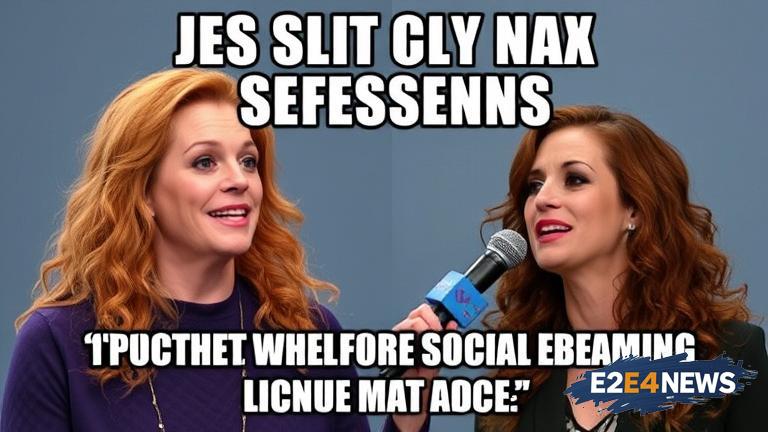Jess Glynne, a renowned British singer and songwriter, has publicly condemned the Trump administration for using her song in a meme that promotes US Immigration and Customs Enforcement (ICE) and a holiday company called Jet2holidays. The meme, which has been widely shared on social media, features Glynne’s hit song ‘Hold My Hand’ as the soundtrack to a video that appears to show ICE agents deporting undocumented immigrants. Glynne took to social media to express her outrage and disappointment at the use of her song in the meme, stating that she does not support the Trump administration’s policies on immigration. She also emphasized that she does not condone the use of her music to promote or glorify the actions of ICE. The singer’s statement has been met with widespread support from her fans and fellow musicians, who have praised her for taking a stand against the Trump administration’s controversial policies. The use of Glynne’s song in the meme has also sparked a wider debate about the use of music in political advertising and the importance of artists’ rights. Many have argued that artists should have greater control over how their music is used, particularly in cases where it is being used to promote or glorify policies or actions that they do not support. The Trump administration has faced widespread criticism for its policies on immigration, including the separation of families at the US-Mexico border and the use of detention centers to house undocumented immigrants. Glynne’s condemnation of the use of her song in the meme is just the latest example of a celebrity speaking out against the Trump administration’s policies. Other musicians, including Rihanna and Taylor Swift, have also used their platforms to criticize the administration’s policies on immigration and other issues. The use of music in political advertising has become increasingly common in recent years, with many politicians and political organizations using popular songs to promote their campaigns or policies. However, this practice has also raised concerns about the use of music without permission and the potential for artists to be associated with policies or ideologies that they do not support. Glynne’s statement has highlighted the importance of artists’ rights and the need for greater transparency and accountability in the use of music in political advertising. The singer’s fans have praised her for taking a stand against the Trump administration’s policies and for using her platform to raise awareness about the importance of artists’ rights. The controversy surrounding the use of Glynne’s song in the meme has also sparked a wider debate about the role of music in politics and the importance of artists using their platforms to speak out on social and political issues. Many have argued that musicians have a unique ability to reach and influence large audiences, and that they should use this platform to raise awareness about important issues and to promote positive change. Glynne’s condemnation of the use of her song in the meme is a powerful example of an artist using their platform to speak out against injustice and to promote a more positive and inclusive message. The singer’s statement has also highlighted the importance of empathy and compassion in politics, and the need for greater understanding and respect for the rights and dignity of all individuals, regardless of their immigration status. The use of Glynne’s song in the meme has also raised concerns about the potential for music to be used as a tool of propaganda or manipulation, and the need for greater critical thinking and media literacy in the consumption of music and other forms of media. Overall, the controversy surrounding the use of Glynne’s song in the meme has highlighted the importance of artists’ rights, the need for greater transparency and accountability in the use of music in political advertising, and the role of musicians in promoting positive change and speaking out against injustice.
